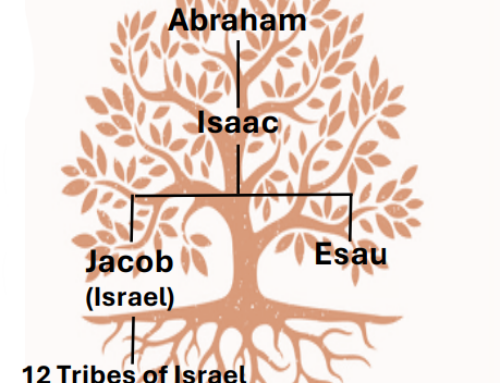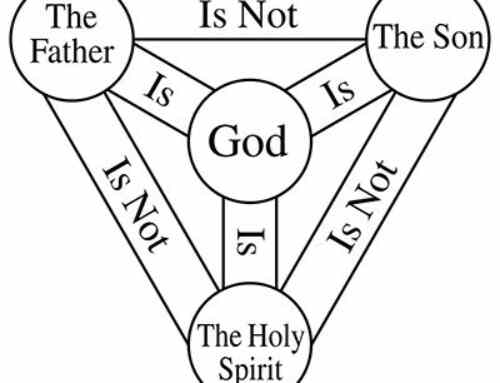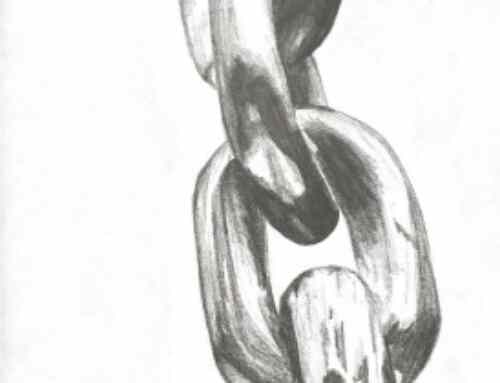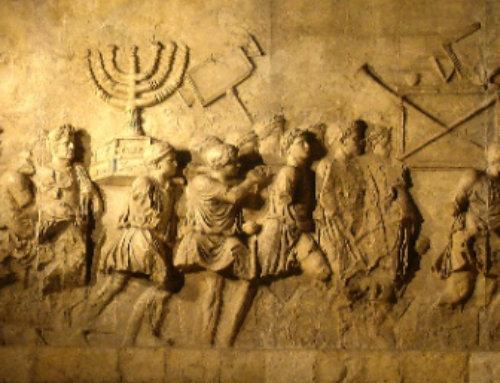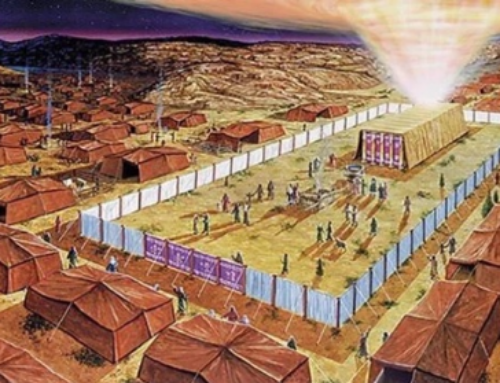Lessons on Prayer
Goal of this Study: WHAT is meant by prayer? WHO was/is the privilege of prayer given to?
HOW are we to pray? WHAT do we pray for?
Additional references: Reprint 5310 – Prayer The Vital Breath Of The New Creature
 What is prayer?
What is prayer?
- “Prayer is the soul’s sincere desire, uttered or unexpressed” – Reprint 4883.
- Today we see peoples of the world and of various religions praying or claiming to have a communion with God. Christians of various denominations and churches give a lot of time and importance to prayer.
- Prayer is a general term used to describe all manner of praise or thanksgiving or petitions or requests unto God. It is a personal and direct communication with God.
What about the practicalities of prayer?
- Does prayer have to be done in a certain way? Standing, sitting, lying down?
Hands folded, hands in the air? - Do prayers have to be said out loud in order to be effective?
- What makes a “good” prayer?
- How can we “talk” with a Spirit Being if we can’t hear His responses?
- If God talks to us in prayer, how do we distinguish His thoughts from our own thoughts?
- How long should we wait to see if a prayer is answered before we pray about it again?
- If a prayer’s answer is either “yes,” “no” or “not yet,” how can we really know the answer?
- Does it really do any good to pray for others? Are we changing God’s mind to direct the outcome for them?
- How do we follow the admonition of “pray without ceasing”? 1 Thessalonians 5:16
- How can we better focus and concentrate when praying?
- Must all our prayers end with an acknowledgement of “in Jesus’ name”?
- What is the danger in NOT praying, especially when we are afraid, ashamed or feel unworthy?
These are common questions many of us have likely pondered at some point. While the study below touches on some of them, its greater purpose is to encourage us to reflect more deeply on the importance of prayer and to inspire us to further study our communication with the Heavenly Father.
Who was/is the privilege of prayer given to?
Initially God spoke directly to Adam in the Garden of Eden.
- Genesis 3:9 “Then the LORD God called to the man, and said to him, ‘Where are you?’”
However, after Adam sinned, all mankind became separated from God.
- Genesis 4:14 “Behold, You have driven me this day from the face of the ground; and from
Your face I [God] will be hidden…”
But there were some individuals who had the knowledge of God and prayed to Him, like Enoch, Noah, Abraham, Isaac, Jacob and Job.
During the Jewish Age:
After the death of Jacob, God said to the children of Jacob…
- Amos 3:2 “You only have I chosen among all the families of the earth…”
God then communicated with the whole Nation of Israel, as God recognized them through a Covenant.
- Exodus 19:5 “Now then, if you will indeed obey My voice and keep My covenant, then you shall be My own possession among all the peoples, for all the earth is Mine.”
This was the law covenant given to them through Moses on Mount Sinai. In this special covenant relationship, God gave to Israel the Aaronic priesthood to serve between God and the people. Israel’s sins were atoned for annually, through the Atonement Day sacrifices which were recorded in the 16th chapter of Leviticus. Thus being “cleansed” and in covenant relationship with God, the nation of Israel could then approach God in prayer!
During the Gospel Age:
At his first advent, Jesus spoke of the way to approach the Father. The Apostle Paul also confirms this singular way. The only way to come to God now is through Jesus Christ.
- John 14:6 “I am the way, and the truth, and the life; no one comes to the Father but through me.”
- Romans 5:11 “…we also exult [joy] in God through our Lord Jesus Christ, through whom we have now received the reconciliation [atonement].”
The Jews also, would have to accept and believe in Jesus, if they were to continue their relationship with God. This favor and calling was later extended to the Gentiles.
- Acts 10:1–2, 45 “Now there was a man at Caesarea named Cornelius, a centurion of what was called the Italian cohort, a devout man and one who feared God with all his household, and gave many alms to the Jewish people and prayed to God continually. …the gift of the Holy Spirit had been poured out on the Gentiles also.”
ALL believers have the privilege of praying to God through Jesus.
Practical questions: To what extent does God hear the prayers of the unconsecrated? (For example, does God hear the prayers of today’s faithful Jewish people still trying to live under the Law?) If He listens to the prayers of the righteous, don’t the sinners need Him more?
How are we to pray?
 One of Jesus’ disciples asked in Luke 11:1, “Lord, teach us to pray.” Jesus replied with what manner or method we are to pray found in Matthew 6:9–13.
One of Jesus’ disciples asked in Luke 11:1, “Lord, teach us to pray.” Jesus replied with what manner or method we are to pray found in Matthew 6:9–13.
1. “Our Father who is in heaven” (verse 9)
- John 17:3 “That they may know You, the only true God.” (This was Jesus’ prayer for his followers.)
- John 1:12 “But as many as received him, to them he
gave the right to become children of God.” - 1 John 3:1 “See how great a love the Father has bestowed on us, that we would be called children of God.”
- Jesus prayed to the Father often as recorded in John 17.
2. “Hallowed be Your name” (verse 9)
- To “hallow” means to honor as holy. Since God’s name is holy, we are to have reverence, love, respect and awe for Him. “Reverence” means having an attitude of deep respect. This is the attitude we are required to have when approaching God. We recognize the privilege of prayer.
- We look to God in adoration and praise. He is the God of the Universe, Creator of All.
- We praise God and His justice, wisdom, power and love, and His unimaginable glory.
- Isaiah 57:15 “the high and exalted One who lives forever, whose name is Holy.”
- Ephesians 1:17 “God of our Lord Jesus Christ, the Father of glory.”
- James 1:17 “Every good thing given and every perfect gift is from above, coming down from the Father of lights, with whom there is no variation or shifting shadow.”
- Psalms 145:2, 3 “I will praise Your name forever and ever. Great is the Lord, and highly to be praised, and His greatness is unsearchable.”
- Nehemiah 9:6 “You alone are the LORD. You have made the heavens, the heaven of heavens with all their host, the earth and all that is on it, the seas and all that is in them. You give life to all of them and the heavenly host bows down before You.”
- 1 Samuel 2:2 “There is no one holy like the LORD, indeed, there is no one besides you, nor is there any rock like our God.”
3. “Your kingdom come. Your will be done on earth as it is in heaven” (verse 10)
- The next thought that must come to mind is God’s Word, and in it, the glorious divine plan for man and the gospel of the Kingdom.
- Right now, God’s will is not being done on earth. But Jesus said to pray for the Kingdom, when God will be obeyed on earth as it now is in heaven.
- We pray for the systematic unfolding of God’s plan to show we are in compliance with it.
- Every passing day brings us closer and closer to the coming of this Kingdom and the complete fulfilment of this prayer.
 4. “Give us this day our daily bread” (verse 11)
4. “Give us this day our daily bread” (verse 11)
- We petition for our basic needs, not our wants.
- Many mistake this request as only for the literal bread of food
and sustenance. But note the Master’s commands on this matter:- Matthew 6:8, 31, 32 “your Father knows what you need
before you ask Him. Do not worry then, saying, What will
we eat? or What will we drink? or What will we wear for clothing? For the Gentiles eagerly seek all these things; for your heavenly Father knows that you need all these things.”
- Matthew 6:8, 31, 32 “your Father knows what you need
- We are to trust God for all our temporal needs of food, clothing and shelter.
- Isaiah 33:15, 16 “He who walks righteously and speaks with sincerity, he who rejects unjust gain and shakes his hands so that they hold no bribe; he who stops his ears from hearing about bloodshed and shuts his eyes from looking upon evil; he will dwell on the heights, his refuge will be the impregnable rock; his bread will be given him, his water will be sure.”
- 1 Timothy 6:8 “If we have food and covering, with these we shall be content.”
- In our prayer, we ask for the spiritual “bread” of God’s Word.
- Jeremiah 15:16 “Your words were found and I ate them, and Your words became for me a joy and the delight of my heart.”
- This “daily bread” also signifies a daily seeking for the Holy Spirit of God.
- Luke 11:11–13 “…how much more will your heavenly Father give the Holy Spirit to those
who ask Him?”
- Luke 11:11–13 “…how much more will your heavenly Father give the Holy Spirit to those
5. “And forgive us our debts, as we also have forgiven our debtors” (verse 12)
- These debts refer to our sins. Thus, this refers to the confession of sins and the seeking for forgiveness. We are to pray and ask for forgiveness for all our sins if we want to be cleansed from all unrighteousness.
- 1 John 1:9–10 “If we confess our sins, He is faithful and righteous to forgive us our sins and to cleanse us from all unrighteousness. If we say that we have not sinned, we make Him a liar and His word is not in us.”
- Our Lord gives a condition for the forgiveness of our sins.
- Matthew 6:14, 15 “For if you forgive others for their transgressions, your heavenly Father will also forgive you. But if you do not forgive others, then your Father will not forgive your transgressions.”
- God makes it very clear that the more forgiveness we seek from Him – correspondingly the more we need to forgive others and their wrongs done unto us. Seek forgiveness as we seek to be forgiving. Think about this! How often do we sin? Are you able to forgive others so that you can also be forgiven?
- This principle helps develop the “golden” Christlike grace of mercy towards one’s fellow man.
6. “And do not lead us into temptation, but deliver us from evil” (verse 13)
 Here are two thoughts implied in the two parts of this verse,
Here are two thoughts implied in the two parts of this verse,
Temptation has two meanings:
1. Trial – These trials allowed by God are to test and prove our
faith and to develop character attributes.
-
- James 1:2, 12 “Consider it all joy, my brethren, when
you encounter various trials. Blessed is a man who perseveres under trial; for once he has been approved,
he will receive the crown of life which the Lord has promised to those who love Him.”
- James 1:2, 12 “Consider it all joy, my brethren, when
2. Fallen and depraved desires of the flesh and the pleasures of sin. This temptation does not come from God. It comes from Satan.
-
- James 1:13, 14 “Let no one say when he is tempted, I am being tempted by God; for God cannot be tempted by evil, and He Himself does not tempt anyone. But each one is tempted when he is carried away and enticed by his own lust.”
What does it mean then when we pray, “do not lead us into temptation”?
- Here the word lead can be better translated as “abandon” or “leave.” We ask God to not abandon us when we are going through different trials or temptations and He promised He will not.
- Hebrews 13:5 “…I will never desert you, nor will I ever forsake you.”
- We can always pray and ask God to help us in all our experiences, so that we can overcome with His help.
- Matthew 26:41 “Keep watching and praying that you may not enter into temptation; the spirit is willing, but the flesh is weak.” This refers to all the sins and weaknesses of our flesh and mind from which the Lord alone can deliver us and give us the victory!
- A careful look at the Greek words here help us to see this as follows: (a paraphrase)
- “Do not abandon me in temptation. I know I need to be tried and I need to grow. I know trials are coming, but help me when these situations become too much and start to overwhelm me.”
- This is why in some translations, it says “deliver us from the evil one.” The prayer is stating we need to count on God in order to be able to stand firmly. It is a humble way to approach the Father. No, He is not leading us to bad things. He leads us through difficult things for the sake of our maturity.
7. In Jesus name (verse 13)
- The concluding thought of all prayer to God is to remember and acknowledge the Son as the great head of the Church.
- Ephesians 1:22 “And He put all things in subjection under His feet, and made Him head over all things to the church.”
- Colossians 3:17 “Whatever you do in word or deed, do all in the name of the Lord Jesus, giving thanks through him to God the Father.”
- We begin our prayer by looking to our heavenly Father and conclude by looking to the Son, who was the one who gave us the great PRIVILEGE to approach the Father to “ask” in prayer. All things are of the Father and through the Son.
- John 16:23, 24 “…Truly, truly, I say to you, if you ask the Father for anything in my name, He will give it to you. Until now you have asked for nothing in my name; ask and you will receive, so that your joy may be made full.”
- John 15:5 “…For apart from me you can do nothing.”
- We must pray often, without ceasing. We pray every day, multiple times a day. We have the example of Daniel who prayed three times a day.
- 1 Thessalonians 5:17 “pray without ceasing.”
- Romans 12:12 “Rejoicing in hope, persevering in tribulation, devoted to prayer.”
What do we pray for?
- God’s will to be done in all circumstances, and our ability to be humble and compliant with that will.
- God’s Kingdom to be established.
- Our “daily bread”—more understanding of His holy word and for His Holy Spirit.
- Forgiveness of our sins, and for help to forgive others.
- Help us in our trials and temptations.
- With gratitude, to thank God for our many blessings.
- The privilege of prayer is all about growing into a connection with our heavenly Father.
- Hebrews 4:16 “Therefore let us draw near with confidence to the throne of grace, so that we may receive mercy and find grace to help in time of need.”

- Hebrews 4:16 “Therefore let us draw near with confidence to the throne of grace, so that we may receive mercy and find grace to help in time of need.”
What a privilege we have to come the throne of grace through our Lord Jesus!






